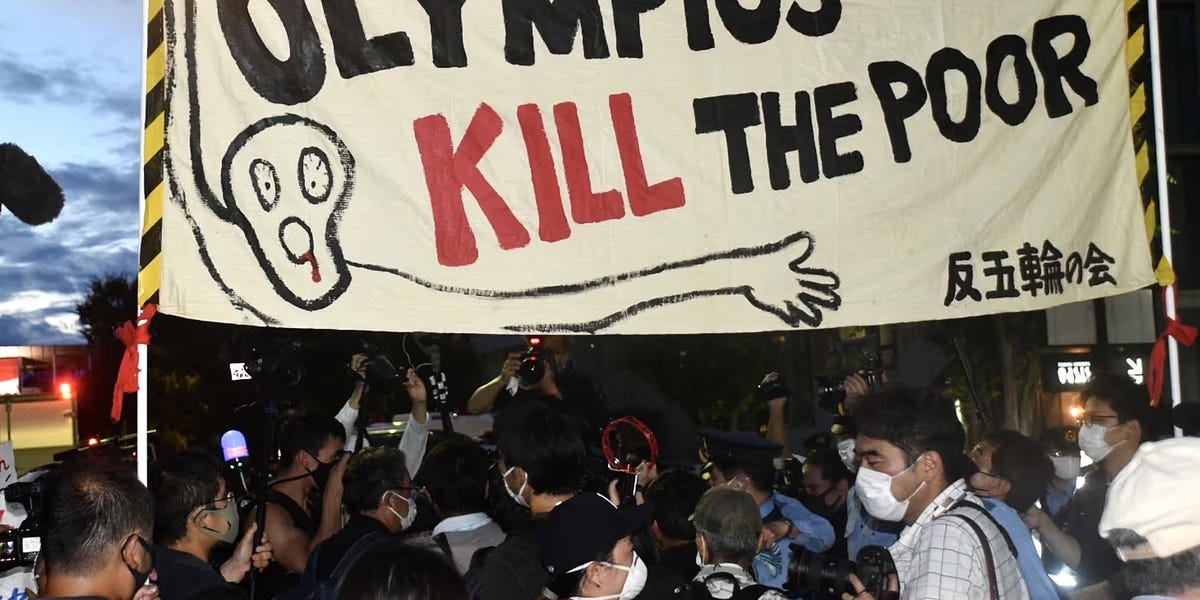
Welcome to Sports Politika, a media venture founded by investigative journalist and researcher Karim Zidan that strives to help you understand how sports and politics shape the world around us. Our mission is to offer an independent platform for accessible journalism that raises awareness and empowers understanding.
If you share this vision, please consider supporting us by joining our community and becoming a paid subscriber.
The upcoming 2024 Paris Olympics are embroiled in numerous controversies, casting a shadow over the the global event. Corruption probes have targeted the organizing committee, raising issues of favouritism and misappropriation of funds The participation of Russian and Belarusian athletes under neutral flags has sparked debate amid the ongoing war in Ukraine, while the lack of similar sanctions against Israel highlights broader concerns of discrimination and double standards.
Additionally, Paris is facing backlash over the eviction of homeless people and traditional bouquinistes, as well as bedbug infestations and disputes over infrastructure readiness. There is also the issue of the militarization of the city, as well as the mass surveillance and privacy concerns that has become part and parcel with hosting the games.
These multifaceted challenges underscore the complexity and tension surrounding the Paris 2024 Games. They also raise questions who the Olympics actually serve and whether they actually matter in our modern world.
To help us address these questions and concerns, I spoke with Jules Boykoff, a renowned expert and scholar on the Olympics who has long been an essential resource in my own reporting on the Games.
Jules is the author of the new book What Are the Olympics For? (Bristol University Press, 2024). He is the author of six books on the politics of the Olympics, including NOlympians: Inside the Fight Against Capitalist Mega-Sport in Los Angeles, Tokyo, and Beyond (Fernwood, 2020), and Power Games: A Political History of the Olympics (Verso, 2016).
Boykoff has written on the Olympic Games for popular publications like the New York Times, The Guardian, the Los Angeles Times, Asahi Shimbun, and Folha de São Paulo, and for academic journals, such as Sociology of Sport Journal, the International Journal of the History of Sport, and the Connecticut Journal of International Law.
Mike Davis has referred to Boykoff’s writing on the Olympics as “pathbreaking history.” University of Southern California sociologist Ben Carrington has called Boykoff “arguably the world’s leading authority on the Olympic movement.” Indigenous scholar Janice Forsyth (Fisher River Cree First Nation) dubbed Boykoff “one of the biggest names in international Olympic Games academia.”
Boykoff lived in England before and during the 2012 London Olympics and was a Fulbright research fellow in Brazil before and during the 2016 Summer Games. He has lectured on the Olympics around the world, from Tokyo to Paris to Rio de Janeiro to Los Angeles. He teaches political science at Pacific University in Oregon.
